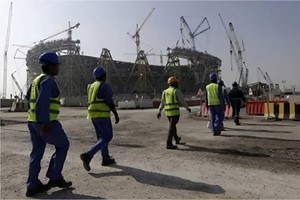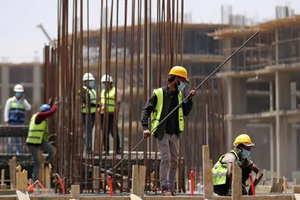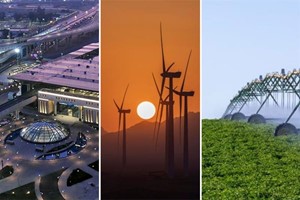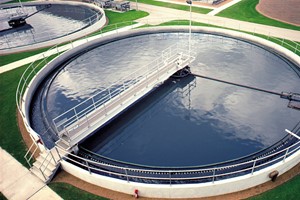Across Egypt, development is taking place at an unprecedented pace
While the construction sector in Egypt was temporarily paralyzed during the early months of the pandemic, the infrastructure project pipeline has remained robust. The need to boost utilities and transport capabilities has helped the sector continue to grow and evolve. The collaborative nature of local and international firms working on key projects has made Egypt's construction sector one of the most dynamic in the region, with positive spillover effects for other markets – particularly those in East Africa – that benefit from Egyptian expertise in delivering large projects.
Over the longer term the sector should see new technologies and innovative practices incorporated into all aspects of the construction value chain, including lean methods like just in time, as well as the use of 5G, BIM and augmented reality technologies.
The construction market in Egypt – be it the number of crane towers on the ground or the contract awards – will maintain its momentum of being the most active in the Middle East and North Africa region in 2022, even as the global economy strives to put the pandemic in the rear-view.
Several strategic factors are at play here - political stability, economic reforms, a relentless push by the government to deliver more projects (even bid for the 2036 Olympics), and a major uptick in crude oil prices. The government’s vision is singular: ‘deliver, deliver, deliver’ with the focus being on all the major construction market segments.
Infrastructure development tops the agenda, particularly the Cairo monorail and the high- and light-speed rail projects that have now reached various stages of implementation. Hill International is providing project management services for the monorail, which when completed in 2024 will transport at its peak about 45,000 passengers per hour. Built by Egypt’s National Authority for Tunnels, this will be the first monorail project in North Africa and also the longest monorail system in the world, at a combined length of 98.5 km and with construction of two lines.
While an upgrade of the Cairo International Airport is on the cards, plans are also gaining ground to develop smaller airports in the west of Egypt primarily to serve international tourists, besides catering to a projected growth in aviation traffic into post-Covid Egypt. Major marine port activity – particularly as an aftermath to COVID-19 – is planned also in the west (in Abu Qir, Ain Sokhna and Alexandria) and along the border with Libya, as Egypt plans to capitalize on its geographical location to be a critical link in the global supply chain industry. The pandemic has taught Egypt to build more ports and provide a platform for logistics hubs and services.
Already investments are pouring into this sector as entrepreneurs see emerging growth opportunities. Given its experience in carrying out port projects globally, especially with the Tangiers Med Port project in Morocco, Hill’s Cairo office will maintain its local availability to provide project and construction management services.
New capital, new real estate
The New Administrative Capital (NAC) City project in Cairo is off the ground with some government agencies due to relocate there. Hill also supports the development of some towers in the NAC that will introduce several other projects in the healthcare and education (universities) that are being built at the moment.
Growth is also forecast in the domestic real estate sector as demand is always on the rise with the economy putting forth a higher purchasing power. Further, Egyptians still believe in buying properties instead of saving cash in the bank, and that, in turn, is fueling the growth for lower income housing.
Cairo is home to major investments from GCC developers in its real estate, retail and entertainment sectors and with crude oil prices reaching seven-year highs of nearly $100/barrel, expectations are rising for an increase in GCC funding into Egypt and other North Africa nations like Morocco, Tunisia and Algeria.
Also in 2022, Hill’s project – the Grand Egyptian Museum – is due for an official inauguration. The $1 billion facility has been built as the world’s largest museum of Egyptian art and culture hosting over 100,000 artefacts and with capacity to accommodate 4.8 million visitors per year.
At an estimated budget of $1 billion, the Grand Egyptian Museum (GEM) is considered the largest museum in the world dedicated to one civilization. The superlatives don’t end there: It’s also the largest museum in Egypt, the largest Pharaonic Museum in the world, and one of the world’s leading scientific, historical, and archeological study centers.
Designed by Irish architects Henghan Peng, the museum sits on the edge of the Giza Plateau, between the pyramids and Cairo. Visitors move through a massive forecourt before ascending to the plateau level, where the galleries are located. There, visitors to the futuristic glass-and-concrete structure can glimpse the ancient pyramids 2 kilometers away.
Owned by the Ministry of Tourism & Antiquities, Engineering Authority of the Egyptian Armed Forces, the 168,000-square-meter structure includes 24,000 square meters of permanent exhibition space covering 3,500 years of ancient Egyptian history. It houses 100,000 artifacts, about 20,000 of them on display for the first time. The precious objects include a 30-foot-tall, 3,200-year-old statue of Ramses the Great, a 140-foot solar boat found buried beside the Great Pyramid, and the Tutankhamun collection. The project also includes a children’s museum and extensive gardens. In all, GEM will accommodate 4.8 million visitors a year.
Construction unfolded over three phases. The first involved clearing the site; the second entailed constructing a fire station, energy supply center, and conservation center. The final phase saw the construction of the main building as well as landscaping.
Construction is now 99% complete, with the remaining 1% representing the final touches and logistics for the official opening, planned for November 2022. It will mark the end of a long journey for the project, which got its start in the early 1990s when a decree from Egypt’s president allocated nearly 50 hectares of land at Giza.
The architect of record is Raafat Miller Consulting. Other team members include structural engineer OVE Arup & Partners, MEP engineer Buro Happold, and general contractors BESIX and Arab Contractors Joint Venture. The project manager is a joint venture between Hill International and EHAF Consulting Engineers.












